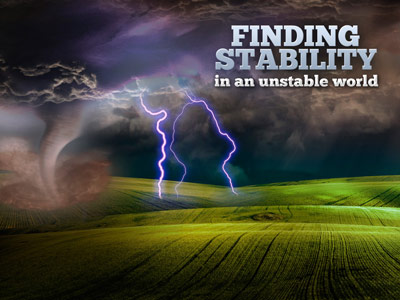-
Once Saved, Always Saved!
Contributed by John White on Feb 4, 2020 (message contributor)
Summary: The Assurance of Salvation, what a tremendous subject! Blessed assurance is one of the most important cornerstones of Christianity and the abundant Christian life.
Once Saved, Always Saved!
I John 5.1-13
The Assurance of Salvation, what a tremendous subject! Blessed assurance is one of the most important cornerstones of Christianity and the abundant Christian life. It would not be an exaggeration to say that a lack of real assurance of salvation is the basis of much Christian immaturity and unhappi- ness today. Although this whole passage is very important as a basis for our understanding of our eternal security in Jesus Christ, let us begin by focusing on verse thirteen.
When we are born God gives each of us a small package of life. According to the psalmist, three score and ten, or seventy years. Some a bit more and others a bit less, but the average is seventy years. When we are born the second time God gives us eternal life. This is a life that goes on and on and never ends. God is an eternal God and His purpose in grace is to have for his eternal pleasure a loving and reciprocating relationship with His eternal Sons. This relationship begins at the point of salvation. When we are born again spiritually and are immediately made partakers of His eternal spiritual nature. The moment we are saved we have credited to our eternal heavenly account a life that is irreversibly eternal.
The basis of our guarantee in the matter is the Bible. There are so many scriptures that speak of and support this proposition that it would be impractical to try to list them all in a short message. The foundation for our salvation and eternal life is our God's eternal Word. In Psalm 119:89 and Hebrews 6:18, 13:8 and many other places God anchors our ship of salvation in the harbour of the Word of God. Just as the old hymn says, "How firm a foundation, ye saints of the Lord, Is laid for your faith in His excellent Word!"
In this verse thirteen John says, "These things I have written that you may know you have eternal life." Written here is the Greek word, grapha, which means the writings or the scriptures. Just as surely as the finger wrote on the wall of Nebachanezzers palace, God writes the foundation for our salvation in His grapha. Our salvation then is not dependent upon what other people say or think about the matter or what might seem reasonable or logical to the non-regenerate carnal man. Our salvation is not even dependent upon how we may feel or what we may think. Just like the children's song, "Jesus loves me, this I know.”. Why? “For the Bible tells me so!" That's the basis of our salvation, the very Word of God.
John says, "These things I have written unto you who believe." In other words, to you who have through faith turned the job over to Jesus. Those who have said, "Lord I cannot save myself, so you must do it." That's exactly what the Greek word pistueo used here really means. A complete transferral of responsibility. John is saying he is writing to people who have really believed in that way. Why? That they might know.
There are two words used in the Greek language for our English word know. One is gnoskos.. This word denotes knowledge based upon emotion, experience or feeling. Up to a certain point this knowledge can be reliable. But such knowledge can be fickle or based upon a false premise, emotion, experience or feeling. Another Greek word for knowledge is oida (pronounced ouya). This word infers knowledge based upon truth and reality. This is the word used here. Not knowledge based upon emo- tion, but upon reality. He wishes true believers to know for a reality that they are present tense posses- sors of eternal life.
There are at least three things that we must understand if we are to have assurance in the Chris- tian life. First, we must understand the nature of salvation. What is it? Who's the author of it? How and when do we get it? What does it do? Second, we must understand the ministry of doubt. If we doubt are we damned? Is doubt necessarily a negative emotion? What purpose might doubt serve? Third, the basis or foundation for assurance. What is not trustworthy as a basis for assurance? What and who can we trust to give us assurance?
By its very nature salvation is immediate and permanent. It is immediate in that salvation happens immediately or right now. At the instant of calling we are eternally saved. (Romans 10:13) Eternal life is eternal and we receive it when we hear and believe the gospel. (John 5:24) The new birth is instan-taneous and immediate and we become eternal sons by an eternal spiritual birth. (John 3:3,7, Gal. 3:26, I John 3:2)

 Sermon Central
Sermon Central



